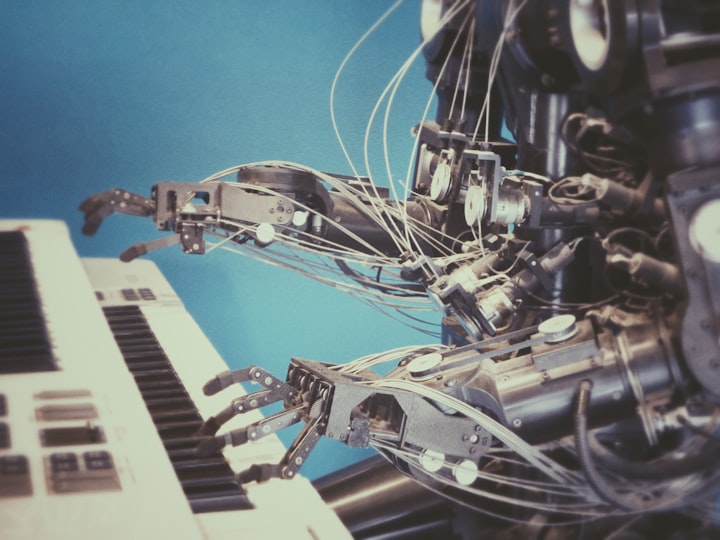The Rise of Artificial Intelligence
How AI Will Revolutionize Our Lives in the Future and the Ethical Implications Involved

Introduction
Artificial Intelligence (AI) has emerged as one of the most transformative technologies of the 21st century. It has the potential to revolutionize various industries and reshape the way we live, work, and interact with machines. From virtual assistants to autonomous vehicles, AI is permeating every aspect of our lives. In this article, we will delve into the future impact of AI and explore the ethical implications associated with its rapid advancement.
Understanding Artificial Intelligence
Artificial Intelligence refers to the simulation of human intelligence in machines, allowing them to perform tasks that typically require human intelligence. AI systems are designed to learn, reason, and make decisions based on data patterns. It encompasses various subfields, including machine learning, natural language processing, computer vision, and robotics.
The Influence of AI on Industries
Healthcare
AI has the potential to revolutionize healthcare by assisting in accurate diagnoses, drug discovery, and personalized medicine. Machine learning algorithms can analyze vast amounts of medical data to identify patterns and predict diseases, leading to early detection and more effective treatments.
Finance
In the finance sector, AI algorithms can analyze market trends and make real-time trading decisions. AI-powered chatbots are also transforming customer service by providing personalized assistance, streamlining processes, and detecting fraud.
Manufacturing
AI-driven automation is enhancing manufacturing processes, improving efficiency, and reducing errors. Robots equipped with AI capabilities can perform complex tasks, leading to increased productivity and cost savings.
Transportation
Self-driving cars and autonomous drones are prominent examples of AI in the transportation industry. These technologies have the potential to enhance road safety, optimize traffic flow, and improve delivery services.
Retail
AI-powered recommendation systems are revolutionizing the retail industry by providing personalized product suggestions based on consumer preferences and behavior. AI is also transforming supply chain management by optimizing inventory and predicting demand.
Education
AI is transforming education by personalizing learning experiences. Intelligent tutoring systems can adapt to students' individual needs, providing tailored instruction and feedback. Additionally, AI-powered chatbots can assist with administrative tasks and answer student queries.
The Future of AI
Machine Learning and Deep Learning
Machine learning algorithms enable computers to learn from data and improve their performance without explicit programming. Deep learning, a subset of machine learning, uses neural networks with multiple layers to process complex data, enabling advancements in speech recognition, image classification, and natural language understanding.
Natural Language Processing
Natural Language Processing (NLP) enables machines to understand, interpret, and respond to human language. NLP applications include virtual assistants, language translation, sentiment analysis, and chatbots.
Computer Vision
Computer Vision enables machines to perceive and interpret visual information. AI-powered computer vision systems can detect objects, recognize faces, and analyze images and videos. This technology has applications in autonomous vehicles, surveillance, and healthcare diagnostics.
Robotics
Advancements in AI are driving the development of autonomous robots capable of performing complex tasks in various domains, including manufacturing, healthcare, and exploration. These robots can interact with the environment, learn from their experiences, and adapt to different situations.
Ethical Implications of AI
Job Displacement and Economic Inequality
The rise of AI raises concerns about job displacement as automation replaces certain tasks traditionally performed by humans. This can lead to economic inequality and job market challenges. However, AI also has the potential to create new job opportunities and foster economic growth.
Bias and Discrimination
AI systems are trained on large datasets, and if these datasets contain biased or discriminatory information, the AI algorithms may perpetuate such biases. It is crucial to address these biases to ensure fairness and prevent discrimination in AI applications.
Privacy and Data Security
AI relies on vast amounts of data, raising concerns about privacy and data security. Proper safeguards must be in place to protect personal information and prevent unauthorized access or misuse of data.
Autonomous Weapons
The development of AI-powered autonomous weapons raises ethical concerns about the potential for indiscriminate use and the lack of human control in critical decision-making processes. It is crucial to establish regulations and ethical guidelines to prevent the misuse of such technologies.
Accountability and Transparency
AI algorithms can be complex and opaque, making it challenging to understand the decision-making process. Ensuring accountability and transparency in AI systems is vital to maintain public trust and prevent potential harm.
Addressing Ethical Challenges
Regulation and Policy
Governments and regulatory bodies must establish frameworks and guidelines to address the ethical implications of AI. These regulations should focus on privacy, bias mitigation, transparency, and accountability.
Ethical Design and Development
Ethical considerations should be integrated into the design and development of AI systems from the early stages. Developers should prioritize fairness, inclusivity, and transparency throughout the development process.
Education and Awareness
Promoting education and awareness about AI and its ethical implications is crucial. This includes educating individuals, organizations, and policymakers about AI technologies, their potential impact, and the importance of responsible AI adoption.
Conclusion
Artificial Intelligence holds immense potential to transform our lives and revolutionize industries across the globe. However, as we embrace this technology, it is crucial to address the ethical implications it brings. By ensuring responsible development, regulation, and education, we can harness the power of AI while upholding ethical principles and safeguarding society's interests. As AI continues to evolve, it is imperative that we navigate the ethical challenges in a collaborative and informed manner to shape a future that benefits all.
About the Creator
Mohammad Imran
✍️ Imran 🌟 Passionate content creator
📺 Sharing captivating stories and insightful perspectives
📝 Words that inspire and entertain
💡Join me on this creative journey! 🌍✨






Comments
There are no comments for this story
Be the first to respond and start the conversation.